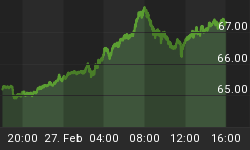Those who root for gold root for India. Despite a welcome June rally, it's been a rocky second quarter for the world's second-largest consumer of the metal, with demand down 18 percent compared to last year.
But consumer appetite seems to be on the upswing following a tepid July. Gold premiums rose to between $10 and $13 a troy ounce this month, compared to zero last month. Such premiums are good indicators that buyers are willing to spend more on gold jewelry and other forms of bullion.
That premiums have risen also suggests that Indians are making their gold purchases ahead of Diwali, or the Festival of Lights, a traditional time to participate in what I call the Love Trade. This year Diwali begins on October 23.
Other global celebrations and events that trigger the Love Trade include the Indian wedding season, the Chinese New Year, Ramadan and, of course, Christmas.

Challenges Affecting Demand
Government policy and temperamental weather are mostly to blame for gold's less-than-satisfactory performance in India.
The recent election of Narendra Modi, who rules the pro-business Bharatiya Janata Party, had the global market hoping he would remove gold import duties. Unfortunately, the duty remained unchanged in the new government's July budget. It's my hope that the Modi administration will rethink this policy and ease the restrictions.

A slow start to the annual four-month monsoon season, beginning in June, also affected sales. Much of the country's gold demand comes from rural households, especially farmers, whose summer crops depend on monsoon rains. Rural Indian households typically devote between 7 and 8 percent of their income on gold, but disappointing crop yields have no doubt cost them earnings.
A Golden Heritage
As it does in many other cultures, gold has a rich tradition in India, where people have been wearing gold jewelry for about 4,000 years. In ancient Hindu epics such as the Ramayana and the Mahabharata, gold is associated with godliness and kingliness, a sentiment millions of Indians still harbor to this day.
A 2012 World Gold Council survey, the results of which are shown below, stresses the high level of importance Indians place on the metal--as a financial asset, fashion accessory and cultural identifier.

The rupee gold price might have risen 320 percent in the last 10 years, but because gold plays such a vital role in the country's heritage, appetite for the yellow metal remains robust.















